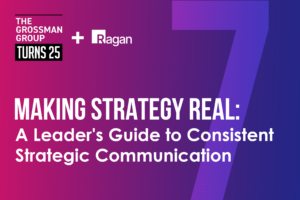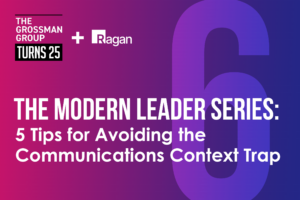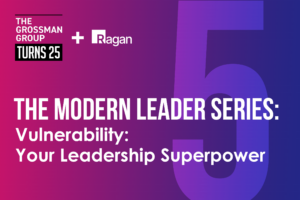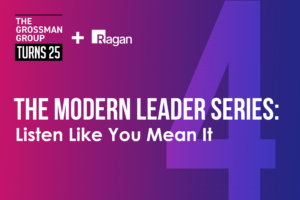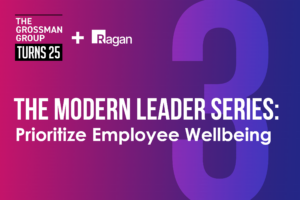Key takeaways from the Ragan and HarrisX 4th annual Survey of Communications Leaders
Insights on trust in leadership judgment, how comms embraces AI, the dip in the importance of DE&I and ESG, and more.
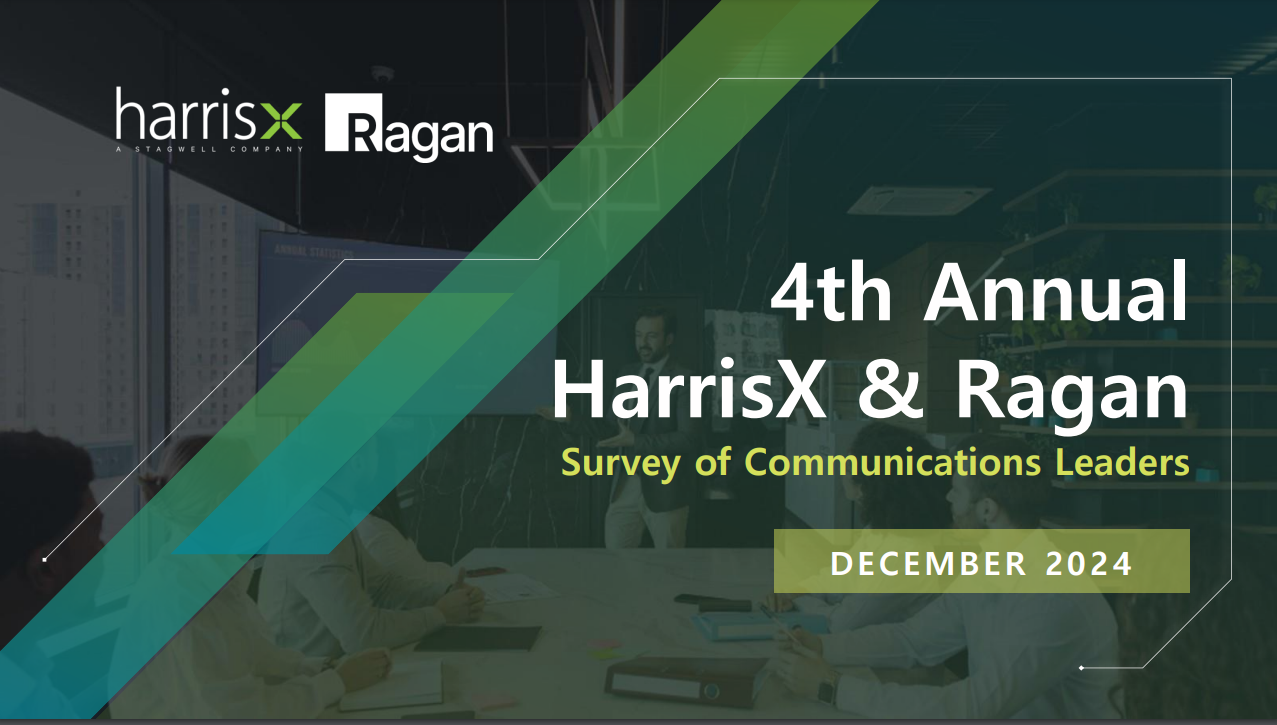
Ragan Communications and leading research firm HarrisX are releasing new data on modern-day corporate communications, asking 437 CEOs and comms leaders how they view each other’s roles and responsibilities, what they value most, and their outlook on pressing industry risks to the communications function including artificial intelligence, corporate activism and brand safety.
Here’s what stuck out.
1. Trust in communications leaders is higher than trust in CEOs
CCOs are the most trusted executive among each surveyed communications function, while CEOs rank last in each instance.
Most CEOs say they oversee both internal and external communications, but other functional leaders ascribe these responsibilities to CCOs.
While 68% of CEOs report leading external communications efforts, other communications leaders—including CCOs— understand this as a more distributed responsibility, especially in medium and large organizations where CCOs are pivotal.
In contrast, 76% of non-CCOs report trusting their CCOs “a great deal” on external communications, and 72% on internal communications. These figures have steadily risen over the past two years.
This disparity illuminates a tension: while CCOs are deeply trusted for their expertise, they are not always credited or recognized with driving communication success.
Thinking of trust as currency in communications, we can begin to identify the sensitive areas of focus where comms can put it to use.
2. DE&I and ESG remain essential elements in communications but have seen a dip in importance.
Many CEOs say DE&I is important in their external (89%) and internal (86%) communications, compared to 82% of other communications leaders. ESG has a similar but slightly lower importance.
Despite CEOs perceiving themselves to be the face of communication efforts, trust in their judgment—particularly in sensitive areas like Diversity, Equity, and Inclusion (DE&I)—has declined significantly. Only 42% of communications leaders trust their CEOs “a great deal” on DE&I matters in 2024, a notable drop from 53% in 2023 and 59% in 2022.
These numbers will be interesting to watch amid the incoming Republican majority in the Legislative, Executive and Judicial branches of the U.S. government that has openly criticized the legitimacy of DE&I work.
3. Comms leaders are embracing AI, but those at smaller organizations are more hesitant.
The results also showed that four in five leaders have a favorable view of AI, though this figure drops in smaller organizations.
Despite greater concerns over the spread of misinformation, medium and large organizations nearly universally utilize AI, cite benefits to their communications work, and say it should play an even larger role moving forward.
The trust placed in CCOs, particularly in medium and large organizations, positions them uniquely to act as strategic advisors and reputation protectors. This trust is further amplified by their ability to manage fresh risks, like the spread of misinformation due to AI.
In a separate finding. a majority (72%) of leaders said they believe that AI will lead to more misinformation in the future, with 55% worried about its direct impact on organizational reputation.
The integration of AI into communications presents a clear reputational opportunity. While 79% of leaders believe AI positively impacts communication quality, smaller organizations remain hesitant to adopt these tools into the communications tech stack.
CCOs can bridge this gap by demonstrating AI’s strategic value, positioning themselves as forward-thinking leaders who drive efficiency while mitigating reputational risks.
Download the key findings report here, and stay tuned for more coverage in the coming weeks.





